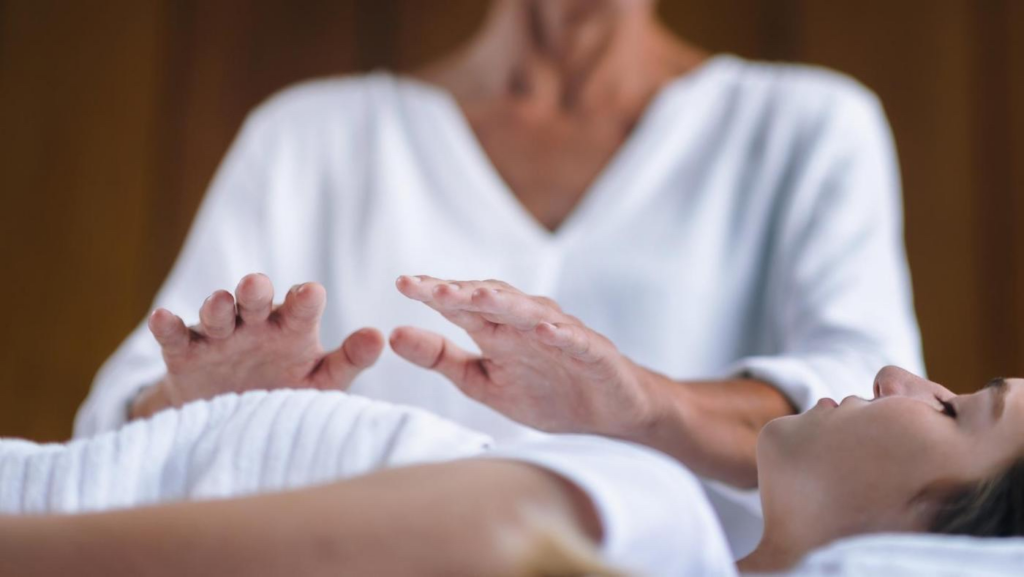
Enter the world of energy healing, which is one of the basic principles of holistic health practices. In this exploration, we will delve into Reiki’s powers, what it feels like to be a healing empath and various energy-curing techniques. Come as we answer all your burning questions and uncover the profound influence these practices have on well-being.
What are the common methods of energy healing?
Common energy healing methods include Reiki, acupuncture, Qigong, and therapeutic touch. These practices focus on balancing the body’s energy to promote healing. Each method uses different techniques, such as hand movements or needles, to restore energy flow.
Reiki involves the transfer of energy by use of hands while acupuncture uses needles. Qigong combines movement with meditation. In therapeutic touch, it involves hand gestures. All of these methods deal with physical, emotional, spiritual, and other problems, working towards bringing good health to a patient by way of removing blockages and promoting self-healing.
How does Reiki work as an energy-healing method?
Reiki involves the practitioner placing their hands lightly on or near the patient’s body to transfer healing energy. This process is believed to activate the body’s natural healing processes and restore physical and emotional balance.
It is believed that Reiki reduces stress and pain by clearing the blockages in energy flow and allowing free flow of energy. The sessions may last from 30 minutes to one hour, in which one feels deeply relaxed with an emotional release. Reiki can be used non-invasively for holistic health enhancement besides other treatments.
Healing purifies life force by removing obstructions within the body’s bio-electromagnetic field. Lastly, Crystal Therapy makes use of specific stones and crystals that have been recognized for having particular energies or qualities that stabilize one emotionally or even physiologically. All these methods provide different things to different individuals who do different types of treatments.
What are the risks associated with energy healing?
Risks of energy healing are generally low but can include delayed medical treatment and reliance on unproven methods. Some practices may cause mild discomfort or emotional release.
Because energy healing is not a substitute for conventional medicine, relying solely on it can be risky, especially for serious medical conditions. Always inform healthcare providers about any complementary therapies being used. Emotional releases may occur as energy blockages are cleared, and it’s crucial to ensure that practitioners are well-trained and reputable to avoid potential negative experiences.

Is acupuncture effective for energy healing?
Acupuncture is an effective energy-healing method, often used to relieve pain and stress. It involves inserting thin needles into specific points to balance the body’s energy.
It is based on traditional Chinese medicine, in which it is believed that health results from a balance in the energy—termed “Qi”—within the body. Acupuncture will reinstate the imbalances and is supported by evidence that proves its effectiveness against diseases like chronic pain and migraines. While individual results may vary, to many, it is of value as a complement to traditional medical treatments.
How can energy healing benefit mental health?
Energy healing can benefit mental health by reducing stress, anxiety, and depression. Techniques like Reiki and meditation promote relaxation and emotional balance.
These practices will help the person calm down and feel better, so it becomes very befitting when combined with traditional treatments regarding mental health. The imbalances in energy will be addressed to improve emotional resilience and support personal growth. Energy healing will help people take steps toward a holistic approach to mental health care because this particular healing promotes self-awareness and gives tools that will enable individuals to participate actively in their healing process.
What is the role of chakras in energy healing?
Chakras are energy centers in the body, and their balance is crucial in energy healing practices. Techniques like Reiki focus on aligning chakras to promote health and vitality.
There are seven principal chakras that relate to various physical, emotional, and spiritual aspects. If the chakras are balanced, the energy will flow freely; thus, it sustains physical, emotional, and spiritual well-being, thereby promoting health. The practitioners believe that blocked chakras may cause physical and emotional problems and that aligning them would bring better well-being and promote personal growth.
Can energy healing be integrated with traditional medicine?
Energy healing can be integrated with traditional medicine to provide holistic care. It complements medical treatments by promoting relaxation and emotional well-being.
It is often used by patients to improve recovery and general health outcomes. Practitioners have coordinate with safe and effective treatment plans. The energy healing can facilitate the body’s self-healing abilities, thus improving recovery time and reducing stress.
What scientific evidence supports energy healing methods?
Scientific evidence supporting energy healing is mixed, with some studies showing benefits like stress reduction. Techniques such as acupuncture have more robust evidence backing their effectiveness.
This integrative approach would be able to help many dimensions of health and hence provide a more inclusive approach to the patient’s treatment plan, meeting their physical and emotional needs.

How do energy healers assess a person’s energy field?
Energy healers assess a person’s energy field through observation, intuition, and techniques like hand scanning. They identify energy blockages and imbalances.
This is still an area under research, and more studies are required to understand it fully and scientifically validate it. Anecdotal reports exist showing some positive outcomes; however, it is hard to validate them scientifically since experiences through energy healing are very subjective. Nevertheless, many find value in these practices for their holistic approach and their potential to complement conventional treatments.
What should you consider when choosing an energy healer?
When choosing an energy healer, consider their qualifications, experience, and approach. Look for certifications and testimonials from past clients.
This information is thereafter used when administering the treatments to work on the restoration of balance and to facilitate healing. There are many different methods used by individual practitioners to apply this particular principle in practice. They most commonly rely on sensitivity and let their hands sense the areas of disturbance within a patient’s energy field. Therefore, the assessment guide outcomes enable the healer or practitioner to know where attention is required and apply techniques of energy correction precisely.
Conclusion
Ultimately, it is important to consider that energy healing should be thought of as an intimately private journey through our lives, always being profoundly transformative if approached respectfully with an open attitude toward it. These practices can result in amazing changes when done with reverence and openness towards them. If you want to learn more about the benefits that may accrue from energy healing, then you should find a reputable professional to take you through this.

